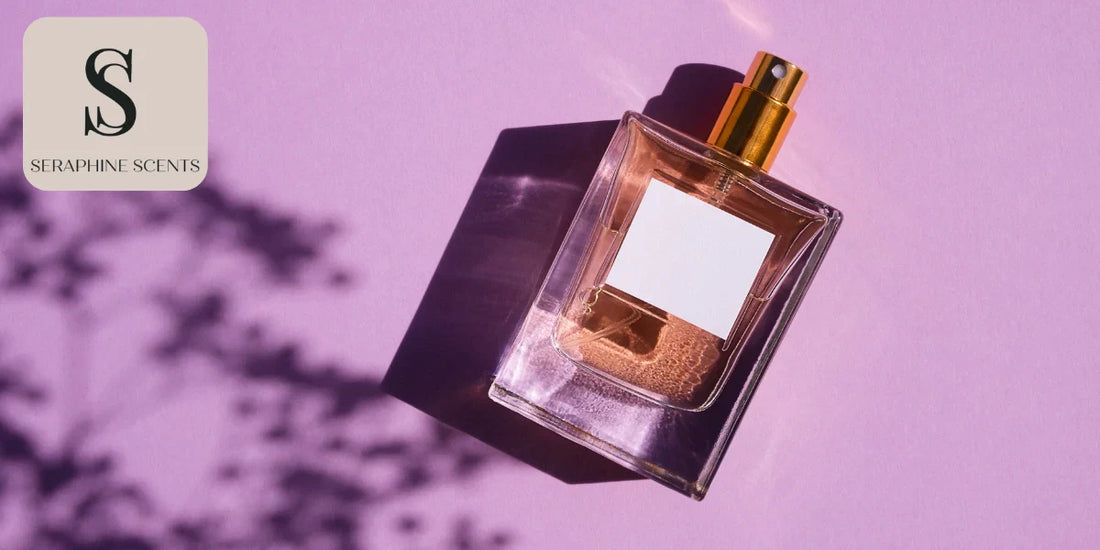
Perfume Allergies & Sensitivities: What You Need to Know Before You Spray
Perfume is a personal luxury—an invisible accessory that completes your style. But for some, wearing fragrance comes with an unwelcome side effect: itching, sneezing, rashes, or even migraines. If this sounds familiar, you may be experiencing a perfume allergy or sensitivity.
This guide breaks down the difference between perfume allergies and sensitivities, their causes, symptoms, and how to choose scents that are safer for your skin and senses. Whether you’re a lifelong fragrance lover or just starting out, this is essential reading before your next spray.
Perfume Allergy vs. Sensitivity: What’s the Difference?
Perfume Allergy: A true allergy triggers an immune system response, often showing up as skin irritation or respiratory issues like wheezing or hives. These reactions are typically immediate and more intense.
Perfume Sensitivity: Sensitivity is more common and less severe. It might show up as headaches, dizziness, sneezing, or skin discomfort—but it doesn’t involve the immune system. Instead, it’s your body reacting to strong or synthetic chemicals.
In either case, it’s important to understand your personal triggers and choose your scents wisely.
Common Symptoms of Perfume Reactions
Here are signs that you may be reacting negatively to your fragrance:
- Red, itchy, or inflamed skin where perfume was applied
- Rashes or eczema flare-ups
- Runny nose, sneezing, or sinus pressure
- Burning or stinging sensation on the skin
- Headaches or lightheadedness
- Difficulty breathing or wheezing (in more serious allergic cases)
If you experience any of the above consistently, it’s worth consulting a dermatologist or allergist for proper diagnosis.
What Causes Perfume Reactions?
Reactions are usually triggered by specific ingredients—especially synthetic compounds used to mimic natural scents. Common culprits include:
- Phthalates: Used to help scent stick to skin longer
- Musk compounds: Can cause headaches or skin irritation
- Cinnamic aldehyde: Found in spicy or cinnamon-like fragrances
- Linalool, limonene, and eugenol: Common allergens found in essential oils
- Preservatives or solvents: Added for stability but not always skin-friendly
How to Avoid Perfume Allergies and Sensitivities
Good news—you don’t have to give up perfume entirely. Here are tips to enjoy fragrance without discomfort:
- Test before applying: Always patch test a new scent on your inner elbow or wrist and wait 24 hours.
- Choose lighter concentrations: Eau de toilette or cologne usually have fewer aromatic compounds than parfum.
- Apply to clothing, not skin: This minimizes skin contact while still letting you enjoy the scent.
- Stick with one spray: Overapplying can overwhelm your senses or others around you.
- Rotate your perfumes: This prevents overexposure to one formula and keeps sensitivities at bay.
How to Choose Safer Perfumes
Here’s how to find a fragrance that’s more likely to work for you:
- Look for hypoallergenic options: Some perfumes are formulated with sensitive skin in mind.
- Opt for simpler blends: Fewer ingredients often mean fewer potential triggers.
- Avoid overly synthetic or strong animalic scents: These tend to contain ingredients that may irritate sensitive users.
- Shop from trusted sources: Always purchase from reputable perfume stores to avoid counterfeits with unknown chemicals. Try Seraphine Scents for 100% authentic designer perfumes with ingredient transparency.
What to Do If You Have a Reaction
If you suspect a fragrance has caused a reaction:
- Stop using the perfume immediately.
- Wash the affected area with mild soap and water.
- Apply a soothing lotion or aloe vera if skin is irritated.
- Consult a doctor if symptoms persist or worsen.
If your reaction was mild and you’re looking for alternatives, consider exploring our under $50 fragrance picks or lighter options in our full collection.
Are Natural Perfumes Better for Sensitive Skin?
Natural doesn’t always mean hypoallergenic. Essential oils can still cause strong reactions in some individuals. The key is to read labels, understand your triggers, and look for brands that emphasize both quality and clarity in their formulations.
Explore our best-selling perfumes to find refined, elegant options that are gentle yet expressive.
Conclusion: Fragrance Should Delight, Not Disturb
Perfume should enhance your day—not cause discomfort. By learning about ingredients, listening to your body, and shopping from trusted sources, you can still enjoy the beauty of scent safely and confidently.
Have a friend or loved one who’s sensitive to fragrance? Share this blog to help them explore safe, luxurious options that don’t compromise on beauty.

